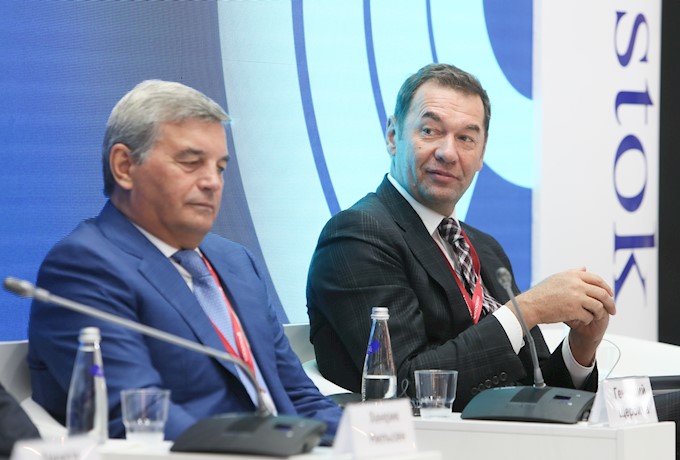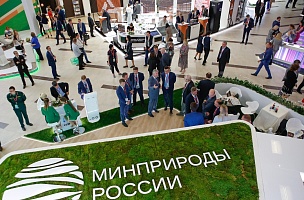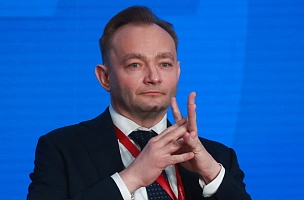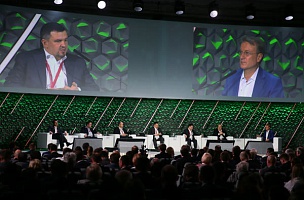KEY CONCLUSIONS
The digital platform is there
«It [the ‘smart city’ agenda, Ed.] has moved forward, keeping in mind that we were rather limited by Covid restrictions. <...> The basis that we have developed in the housing and utilities sector <...> in terms of online payments for utilities, optimizing costs, creating a safe environment, making it possible to get anything consumption-related done online. <...> All of that <...> was created on the platform, and on the basis of ‘smart’ upkeep and service, it demonstrated both the advantages and what we need to improve. <...> What is very important, <...> what the developers and businesses see, all of that has to do with electronic cartography and cadastre, the work done by Rosreestr,» Nikita Stasishin, Deputy Minister of Construction, Housing and Utilities of the Russian Federation.
The ‘smart’ component of a building is embedded at the design stage
«Developers are now competing not only in terms of square metre cost, but with the quality of the product and the range of services they provide. So, the more innovative, technological services they provide, the more people look at the product is competitive in terms of quality and advanced things,» Nikita Stasishin, Deputy Minister of Construction, Housing and Utilities of the Russian Federation.
«There are buildings that stand next next to each other, the cost is the same. What is playing [a role, Ed.] is the reputation of the developer, and how well you do things for the residents,» Gennadiy Shcherbina, General Director, Etalon Group of Companies.
PROBLEMS
Low energy efficiency of «old» housing
«The age of housing in Russia is over 40 years on average, and most of it was built before 1994. Most of the housing available today is <...> old,» Henrik Frank Nielsen, Senior Vice President, Head of Insulation North East Europe, ROCKWOOL Group.
«In large cities, 70% of carbon emissions come from generating electricity to power those homes. The UN Commission on Climate Change has concluded that those emissions should not exceed 40%,» Henrik Frank Nielsen, Senior Vice President, Head of Insulation North East Europe, ROCKWOOL Group.
Rural areas are getting ‘smarter’ at a slower pace
«In order for the rural area to get ‘smarter’, it is necessary to create a competitive environment. And in order to create a competitive environment, it is actually necessary to stop the outflow of people who are leaving those rural areas. We have a lot of programmes aimed at that, from sustainable rural development to mortgages, to support for young families, scientists, doctors, teachers,» Nikita Stasishin, Deputy Minister of Construction, Housing and Utilities of the Russian Federation.
Outdated standards
«We still have to build houses equipped with radio [sockets, Ed.], but there is no obligation to connect buildings to the Internet,» Andrey Kuzyaev, President, Member of the Board of Directors, ER-Telecom Holding.
SOLUTIONS
Ubiquity of telecommunications
«Mobile phones, broadband internet access in every house are the foundations of this new world. <...> We have provided broadband internet access in every new building and every old building, too. And now we do it all over the country, we take it to every rural house. <...> It took us 10 years to create the infrastructure, so things should move faster now» Andrey Kuzyaev, President, Member of the Board of Directors, ER-Telecom Holding.
Increasing the role of BIM technologies in creating ‘smart’ cities
«In BIM technologies, it is possible to embed all the innovative solutions that will live in the project from start to finish. This year, our goal is to ensure that BIM technologies reach out to housing service management companies. <...> Making all things digital. <...> The building recognizes you; it opens the doors for you, it takes you up in the elevator, it reads the numbers from the meters, it wires the payment to the service management companies. All of that in your mobile device, so you do not have to make it up,» Gennadiy Shcherbina, General Director, Etalon Group of Companies.
«What are BIM technologies and digital modelling? Indeed, we spend more money during the design process, but we optimize the timing of construction, thereby paring losses. And most importantly, we greatly optimize for future operation. It is impossible to consider digital modelling separately from the technology of construction and installation works and, most importantly, from operation. This life cycle from the point of conception to a moment in
Housing renovation as a way to reduce carbon emissions
«Urbanization is a matter of fact. By 2030, we may have more than 40 cities in the world with population over 10 million people. Renovating cities will positively bring many benefits. <...> It will be good for the environment, as energy consumption and harmful emissions will be reduced. In the European Union we have certain potential to increase energy intensity, energy efficiency in ‘smart’ homes, up to 60%,» Henrik Frank Nielsen, Senior Vice President, Head of Insulation North East Europe, ROCKWOOL Group.
Resolving regulatory issues in the construction industry
«We need to create more incentives to drive as much initiative, as much capital, as much innovation as possible into this field. If proper regulation is in place, if there is government investment, if there is a market environment, I dare to assure you that in 10 years we will be living in ‘smart’ cities. <...> The point of ‘smart’ cities is not to use digital or any other technologies everywhere. The point is for the cities to become client-centric, so that they are for the people,» Andrey Kuzyaev, President, Member of the Board of Directors, ER-Telecom Holding.
«70% of what they [the developers, Ed.] do today is for people — not necessarily at the construction stage. But it is their competitive environment. <...> We are trying to eliminate unnecessary regulation as much as we can. <...> The main thing that should remain a mandatory requirement is safety. All other things should be regulated by the market. But safety for future residents and for all matters should remain closely regulated. All other things should be regulated by businesses and the market,» Nikita Stasishin, Deputy Minister of Construction, Housing and Utilities of the Russian Federation.
For more information, visit the ROSCONGRESS.ORG Information and Analytical System.






